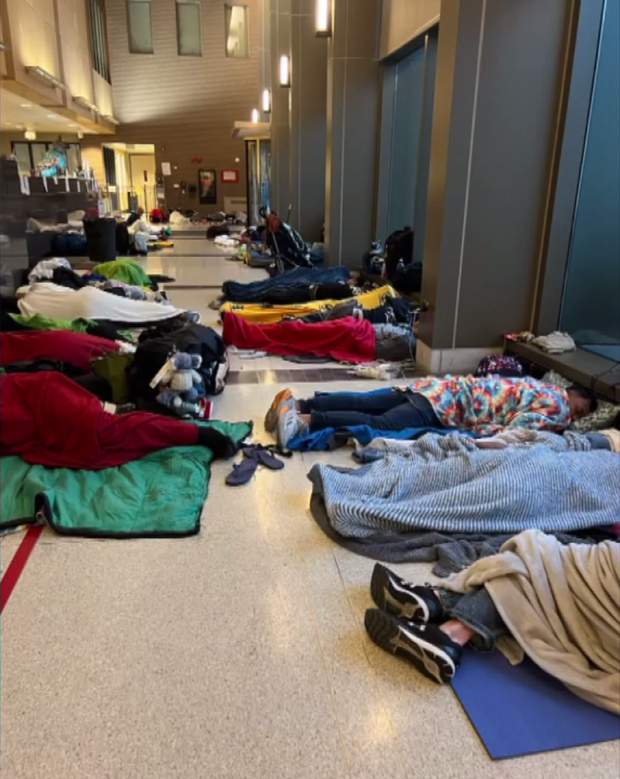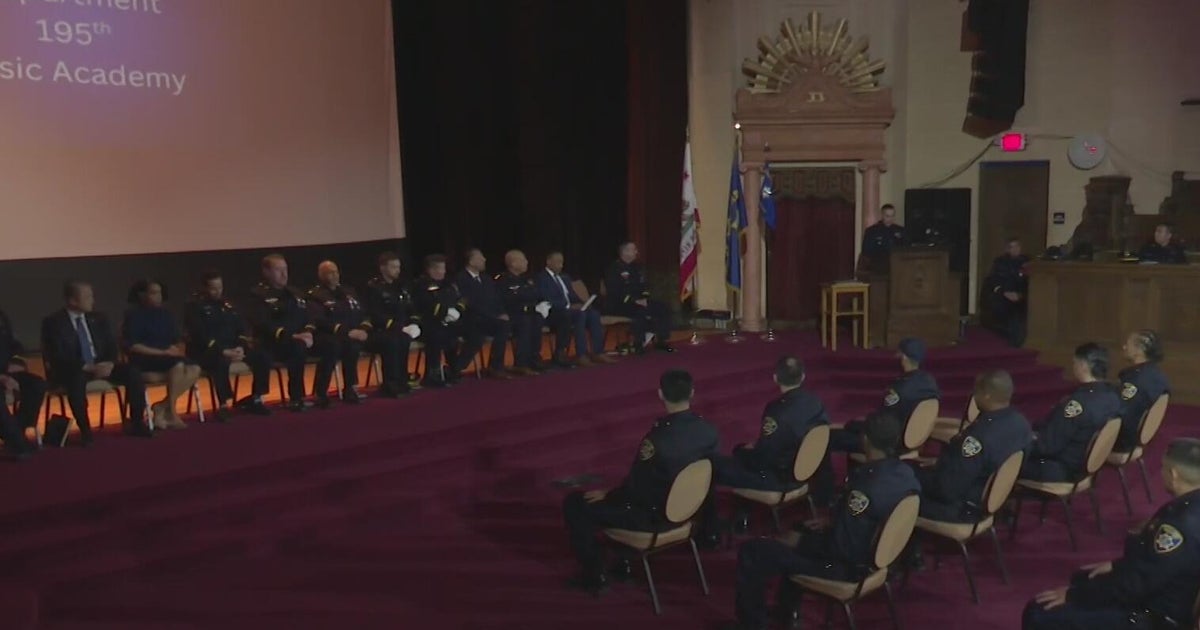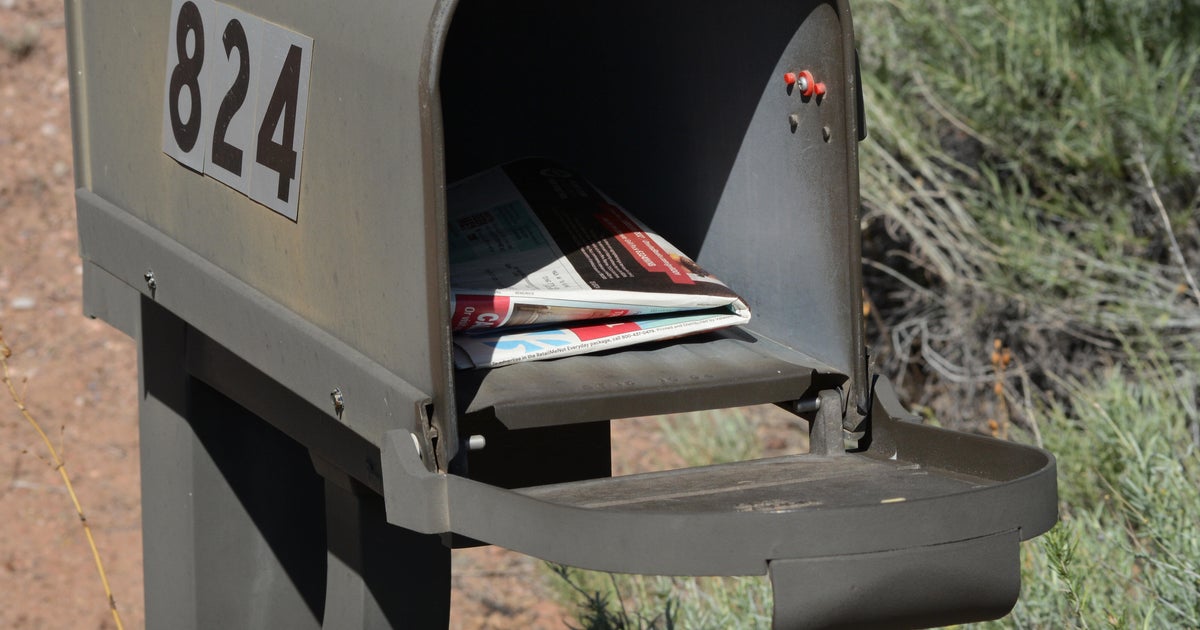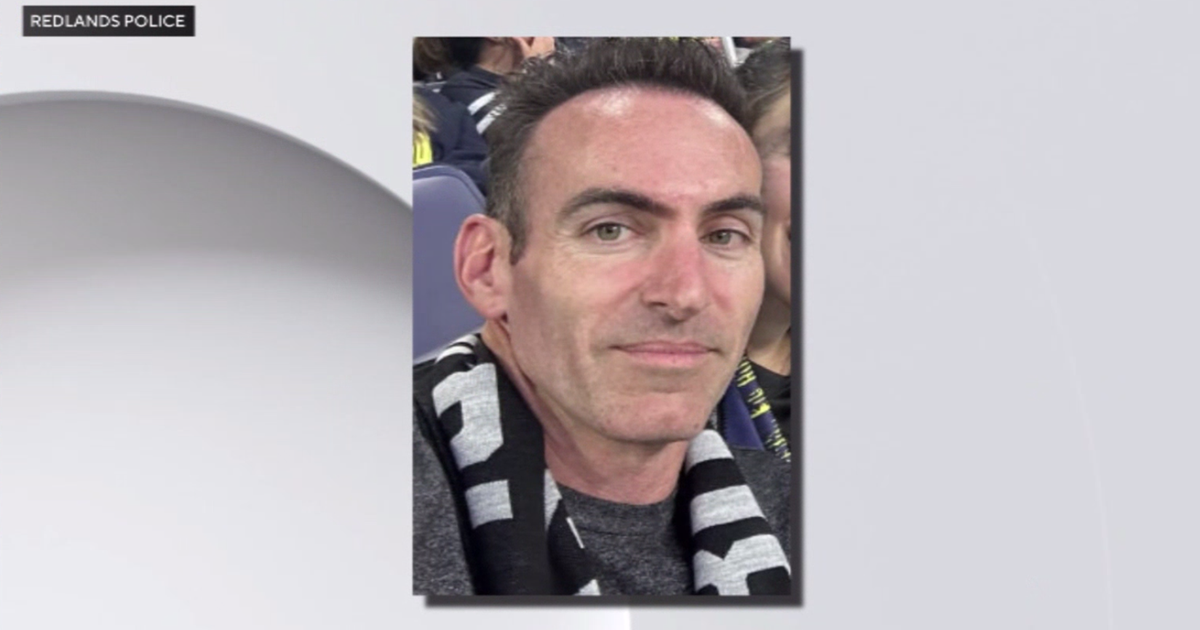Near West District police station at 'full capacity' with migrants, police memo says
CHICAGO (CBS) -- Police sources say there were more than 100 asylum seekers living in the lobby of the Near West (12th) District police station, 1412 S. Blue Island Ave., on Wednesday and Thursday.
A police source said as of Friday morning, there were 794 migrants at police stations across the city. The Near West District has 115.
Among them was a family who traveled through treacherous conditions to get to the U.S. and to Chicago.
Yatsiev Camila Velasquez Ramon, 18, has been living at the police station for the past three days.
In a photo taken around 6:30 a.m. Thursday, asylum seekers were sleeping wall to wall in Near West police station lobby.
CBS 2 obtained a police memo, which says as of Thursday morning, there were nearly 100 asylum seekers in the lobby, which was "at full capacity." The memo said district station "cannot handle any more asylum seekers at this time due to lack of space and deteriorating sanitary conditions and lack of sufficient toilet facilities."
Velasquez Ramon came from Colombia. She said she wanted to come to Chicago to find work and get her education, as in Colombia, there is no work.
Velasquez Ramon also said she wants a better future for herself, and her daughter Keinny - who is 2 years old.
During her journey to Chicago, Velasquez Ramon walked through a jungle in Panama for nine days - with her toddler, her mother, and the baby's father.
Altogether, the trek from Colombia took more than a month, Velasquez Ramon said. The family traveled through five countries before arriving in Texas, then coming to Chicago.
Her mother, Maryori Katherine Ramon Martinez, said they traveled through five countries before getting to Texas, then making their way to Chicago.
Ramon Martinez said her granddaughter has been without her thyroid medication for two months. She said little masses have started forming under Keinny's skin, and her arms have become swollen.
When Le Mignot asked if they told anyone, they said no. So Le Mignot went into the Near West District station and interpreted for the family - telling police about Keinny's condition.
Police immediately called for an ambulance, which arrived within minutes to take the 2-year-old to Stroger Hospital of Cook County.
Keinny's grandmother was very grateful, and thanked Le Mignot for getting her granddaughter help. Meanwhile, in response to the growing number of migrants arriving at districts, the Office of Emergency Management and Communications told us in a statement one of their top priorities is to relieve the pressure being put on districts:
"The City is working around the clock to respond to the growing number of new arrivals we are receiving on a daily basis. One of our top priorities is to decompress the police stations to provide safe spaces for the asylum seekers. City representatives from the Mayor's Office, the Office of Emergency Management and Communications, the Department of Family Support and Services, the Department of Assets, Information and Services, Chicago Department of Public Health, Chicago Police Department, and the Department of Housing have been collaborating with the Chicago Park District, Chicago Public Schools, Chicago Public Library, Alderpersons, community-based organizations, and community leaders to identify sites to serve as temporary respite centers to address the current increase. This includes a diverse set of public facilities that meet the necessary criteria for immediate large-scale temporary respite and shelter parameters.
"As we collaborate with our partners to identify long-term solutions, we will continue to engage in planning and communication efforts with residents to ensure the continuity of services and limited disruption of programming at public facilities. We will continue to advocate for additional federal and state funding to support our efforts with new arrivals.
"For residents wanting to help the City of Chicago has partnered with Instituto del Progreso Latino to handle donations for the new arrivals - Donations (chicago.gov) and it is the best way for residents and volunteers to provide assistance."









